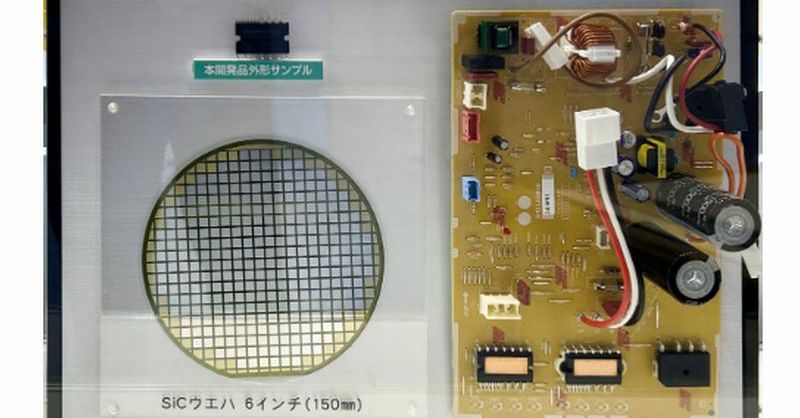Energy-Saving AC: Revolutionizing Cooling with SiC-Based IPM Technology
The quest for energy-efficient cooling solutions is intensifying, driven by rising energy costs and environmental concerns. A groundbreaking advancement in air conditioning technology promises to significantly reduce energy consumption: Silicon Carbide (SiC)-based Intelligent Power Modules (IPMs). This innovative technology is poised to revolutionize the HVAC industry, offering substantial benefits for both consumers and the planet.
What are SiC-Based IPMs and How Do They Work?
Traditional air conditioners rely on Insulated Gate Bipolar Transistors (IGBTs) for power conversion. While functional, IGBTs suffer from relatively high switching losses, leading to inefficient energy use. SiC-based IPMs, however, offer a significant leap forward. SiC transistors boast superior characteristics compared to IGBTs:
- Higher Switching Frequencies: SiC allows for much faster switching speeds, minimizing energy loss during the on/off cycles of the compressor.
- Lower On-Resistance: This reduces power dissipation, translating to lower operating temperatures and improved efficiency.
- Wider Bandgap: SiC's wider bandgap allows it to operate at higher temperatures and voltages, further enhancing its performance and reliability.
These advantages combine to create a significantly more energy-efficient air conditioning system. The SiC-based IPM acts as the "brains" of the AC unit, intelligently managing power flow to optimize performance and minimize energy waste. Think of it as a highly efficient traffic controller for electrical power within the AC system.
Benefits of SiC-Based IPM Technology in Air Conditioners:
- Reduced Energy Consumption: Expect significant reductions in electricity bills, potentially up to 30% depending on the specific application and existing system.
- Lower Carbon Footprint: Reduced energy consumption directly translates to a lower carbon footprint, contributing to a greener environment.
- Improved Efficiency: The higher efficiency means the AC unit can cool your space more effectively using less energy.
- Smaller and Lighter Units: The improved efficiency potentially allows for smaller and lighter AC units, which are easier to install and transport.
- Increased Reliability and Durability: SiC's inherent robustness contributes to longer lifespan and reduced maintenance requirements.
The Future of Cooling: Market Impact and Adoption
The adoption of SiC-based IPM technology is expected to grow rapidly in the coming years. Major manufacturers are investing heavily in research and development, and we're already seeing the first generation of SiC-powered AC units enter the market. This technology is not limited to residential applications; it's also relevant for commercial and industrial HVAC systems, promising significant energy savings on a larger scale.
Challenges and Considerations:
Despite its advantages, the widespread adoption of SiC technology faces some challenges:
- Higher Initial Cost: SiC-based IPMs currently command a higher upfront cost compared to IGBT-based systems. However, the long-term energy savings typically outweigh the initial investment.
- Supply Chain Constraints: The production capacity for SiC devices is still expanding to meet the growing demand.
Conclusion: A Cooler, Greener Future
SiC-based IPM technology represents a major step forward in energy-efficient cooling. While challenges remain, the potential benefits – reduced energy consumption, lower carbon emissions, and improved efficiency – are compelling. As the technology matures and production scales up, we can expect to see its widespread adoption, shaping a cooler and greener future for air conditioning and beyond. Keep an eye out for this innovative technology as it transforms the HVAC landscape.
Further Reading:
- (Replace with actual link)
- (Replace with actual link)
Keywords: SiC, Silicon Carbide, IPM, Intelligent Power Module, Energy-efficient AC, Air Conditioner, HVAC, Energy Saving, Green Technology, Cooling Technology, Sustainable Energy, Energy Efficiency, Low Carbon Footprint.
